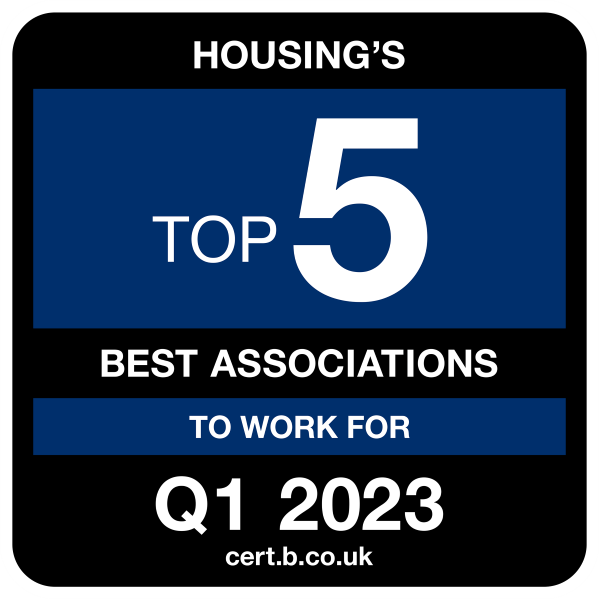We know the impact that anti-social behaviour and hate crime has on individuals and community safety. We take a victim centred approach to dealing with it and offer a wide range of ways that customers can report it.
If you wish to report an incident of ASB or hate crime please get in touch with us.
- By telephone on:
0300 011 1144 – Jigsaw Homes Tameside & Jigsaw Homes Midlands
0300 111 1133 – Jigsaw Homes North - By email at info@jigsawhomes.org.uk
- Online via the My Jigsaw customer portal
- In person at any of our offices during office hours
- By writing to us at our head office anytime.
We expect our tenants to act reasonably and be considerate of the different values and lifestyles reflected in our neighbourhoods and where the anti-social behaviour is a criminal offence, we encourage those affected by it to report the matter to the police.
The term “anti-social behaviour” is broad in its definition and will mean different things to different people.
Below are some examples of the more common types of anti-social behaviour, but this list is not exhaustive.
- harassment
- using or threatening to use violence
- bullying or intimidation
- repeated abusive language or behaviour
- actions of hostility or prejudice against anyone because of their actual or perceived identity, whether that be their race, religion, disability, sexual orientation, transgender identity or alternative sub-culture (this is known as a hate incident or hate crime)
- any incident or pattern of incidents of controlling, coercive, threatening behaviour violence or abuse between those who are, or have been, intimate partners or family members regardless of gender (this is known as domestic abuse and more information about this can be found on our domestic abuse page.)
- loud music and/or noise that is capable of causing nuisance or annoyance to a reasonable person.
- dog barking and fouling that is capable of causing nuisance or annoyance
- making false or malicious complaints about someone else’s behaviour
- using the property or allowing it to be used for any immoral or illegal purpose
- causing or committing any act of violence or any form of harassment, intimidation or abuse against any member of our staff or anyone authorised to act on our behalf
Sometimes customers may wish to report behaviour they believe is unacceptable, but the behaviour is not anti-social in accordance with our definition. We expect our residents to be tolerant of other people’s lifestyles and will not accept reports of behaviour that most people accept as a reasonable part of everyday life.
For example:
- A one-off party
- Children playing outside i.e. playing ball games
- Children arguing or fighting with one another
- Actions that are considered to be normal everyday activities or household noise
- Reports of people staring
- Actions which amount to people being generally unpleasant to one another
- name-calling or disputes over social media, unless it amounts to harassment.
Our ASB teams will exercise their professional judgement when assessing whether or not a report of anti-social behaviour meets our definition or not. Where the behaviour reported is not anti-social, we will provide customers with self-help options where appropriate.
Dealing with hate incidents and hate crime is part of our commitment to promote equality and diversity and tackle anti-social behaviour. Hate incidents and hate crime stem from prejudice against others based on views about people’s differences. They are, therefore, contrary to our principle of diversity where differences are respected and valued.
Hate incidents only become hate crimes when a criminal offence has been committed.
Jigsaw Homes Group will investigate all hate incidents and hate crimes. We take the view that if an incident of anti-social behaviour is perceived by a customer to be motivated by hate then it will be treated as such. The apparent lack of motivation as to the cause of a crime or an incident is not relevant, as it is the perception of the person affected that matters.
As part of our multi-agency approach to dealing with anti-social behaviour we will, where appropriate, report hate incidents and hate crime to the police. This could be for recording purposes or action, depending on the customers’ wishes.
We understand the impact that anti-social behaviour can have on victims and witnesses. We have appropriate measures in place to identify and respond to risk and the vulnerability of those affected by it.
Where appropriate we will use a Risk Assessment Matrix (RAM) to identify the following:
• the welfare, safety and well-being of the person
• the impact the behaviour is having on their lives
• an assessment of any vulnerability and the support in place
• what’s known about those causing the anti-social behaviour
• the cumulative effect of any repeated incidents
The purpose of the risk assessment is to determine the impact of anti-social behaviour on victims and witnesses and to ensure that we provide an appropriate response. We will tailor support accordingly, taking all known circumstances into account. Below are some examples of the types of support, but this list is not exhaustive:
• directing victims and witnesses to specialist agencies that can assist them (where appropriate we will make referrals on their behalf) i.e. victim support
• in-house tenancy support, subject to local arrangements
• security measures i.e. CCTV, target hardening of the property
• legal action to protect from serious harm
• temporary or permanent re-housing subject to local arrangements
• ensuring that witnesses attending court are supported
• involving our Community Safety Partners to provide a holistic approach to support i.e. referrals to Anti-Social Behaviour Risk Assessment Committees or
other similar groups.
As part of our commitment to tackle anti-social behaviour we recognise that those causing it may have underlying problems which contribute to their actions i.e. alcohol misuse, drug misuse, physical health problems, mental health problems etc.
Jigsaw Homes Group will support those causing anti-social behaviour to identify and resolve their problems either by signposting them to appropriate agencies or making referrals on their behalf. Subject to local arrangements, we may offer in-house support to those willing to change their behaviour.
Where necessary we will couple any support with enforcement action in order to ensure the person engages and stops causing anti-social behaviour. We will take swift action if the person causing the anti-social behaviour is failing to engage with support and/or their behaviour does not improve. Our primary focus will be to ensure the necessary protection is in place for victims and witnesses.
In supporting those that are suffering from anti-social behavior or causing it, staff will report any safeguarding concerns they become aware of to the relevant agencies in accordance with Jigsaw Homes Group Safeguarding Children and Adults Policy and Procedures.
Jigsaw Homes Group work in partnership with a wide range of agencies both strategically and operationally to prevent and tackle anti-social behaviour in our
neighbourhoods. We recognise that where those causing anti-social behaviour are known to several agencies, we can tackle the issues more effectively by working in partnership.
We will support and contribute to Community Safety Partnerships where crime and anti-social behaviour is having an adverse effect on our neighbourhoods.. There are currently sixteen Community Safety Partnerships operating in the geographical areas where we own properties. As we are not a responsible authority of these partnerships, our influence can sometimes be limited, especially in locations where we have limited numbers of homes.
Jigsaw Homes Group will, where appropriate, arrange and/or attend partnership meetings with agencies where a multi-agency approach is beneficial to resolving
issues. The majority of agencies we work with are the responsible authorities of Community Safety Partnerships i.e. the police, the local authority, fire and rescue
service, probation service and clinical commissioning groups.
Where requested to do so, we will attend case intervention meetings that involve our tenants or prospective tenants i.e. the Multi-Agency Public Protection Arrangements Group (MAPPA), Multi Agency Risk Assessment Conferences (MARAC), Anti-Social Behaviour Risk Assessment Conference (ASBRAC) etc.
Jigsaw in North Manchester is a third party reporting centre (TPRC) for hate crime.
The reporting centres enable victims of hate crimes to both seek support and be encouraged to report hate crime and hate incidents in an environment of their choosing where they may feel more confident and comfortable. A hate crime is any criminal offence that is motivated by hostility or prejudice based upon the victim’s: Disability, Race, Religion or belief, Sexual orientation, Transgender identity or membership of an Alternative sub-culture.
Third party reporting can also be made directly to GMP by using the 101-telephone number or 999 if the incident is an emergency
Or by accessing the national True Vision hate crime reporting website: Report It
You can find other useful information on Lets End Hate Crime and We Stand Together | Home
Our Neighbourhood Enforcement teams will make use of the full range of non-legal and legal actions available. Legal action will be taken where necessary to protect victims and witnesses and to stop problems escalating.
Any legal action taken will be proportionate and supported by sufficient evidence including action taken or being considered by other agencies i.e. the police, the local authority etc. We will have due regard to the Human Rights Act 1998 and Equality Act 2010.
Where appropriate, we will also consider and promote the implementation of legal action enforceable by other agencies, for example:
• where the anti-social behaviour is being caused by owner-occupier, other social landlord tenants or private tenants in our neighbourhoods
• where the anti-social behaviour is a criminal offence
The legal powers available to us are:
Civil Injunction
This is a civil power under Part 1 of the Anti-social Behaviour, Crime and Policing Act 2014 for the purpose of stopping or preventing individuals engaging in anti-social behaviour. The court has to be satisfied that on the balance of probabilities an individual has engaged or threatens to engage in conduct capable of causing nuisance and annoyance in order to grant the injunction.
It can be issued against an individual who is 10 years of age or over. It is issued by the County Court or High Court for over 18s and the Youth Court for under 18s.
The injunction includes relevant prohibitions to get an individual to stop behaving anti-socially. It can also include positive requirements to get an individual to deal with the underlying causes of their behaviour.
A court can attach a power of arrest to the injunction where it is satisfied that the individual has engaged or threatened to engage in violence against other persons or where there is significant risk of harm to other persons.
If there is evidence that an individual has not complied with the terms of an injunction this is a breach, which is a civil contempt of Court. For over 18s this is punishable by up to two years in prison and/or an unlimited fine. For under 18s this is punishable by a supervision or detention order.
Jigsaw Homes Group will consider taking possession proceedings against tenants who are committed for breaching an injunction.
Demoted tenancies
Jigsaw Homes Group can apply to the County Court for a demotion order against a tenant in accordance with the Housing Acts 1985 and 1988 (as amended). In Court we must prove that the tenant, a member of their household or a visitor has behaved antisocially or used the property for illegal purposes. If the Court grants us a demotion order, it ends the tenancy on a specified date. If the tenant remains in occupation, a new demoted tenancy will begin on the same date.
Demoted tenants have limited rights while their tenancy remains demoted, which is usually between 12 and 18 months. If anti-social behaviour continues or the tenant breaks other terms of the demoted tenancy, then we can go back to court and request possession of the property.
Possession proceedings
Jigsaw Homes Group can apply to the County Court to recover the possession of a tenant’s home in accordance with the relevant schedules of the Housing Act 1985 (as amended) and the Housing Act 1988 (as amended). There are two different types of possession proceedings that can be taken; those that rely on discretionary grounds and those that rely on a mandatory (absolute) ground.
Discretionary grounds – In granting possession the Court must be satisfied that the ground for possession has been established and it is reasonable to make the order. The grounds we can rely on in respect of anti-social behaviour are as follows:
- Any obligation of the tenancy has been broken
- The tenant or anyone living in or visiting the property has been:
- guilty of behaviour causing or likely to cause nuisance or annoyance to anyone living in, visiting or carrying out a lawful activity in the locality and/or
- guilty of behaviour causing or likely to cause a nuisance or annoyance to the landlord, or a person employed (whether or not by the landlord) in connection
- with the landlord’s housing management functions and/or
- convicted of using the premises or allowing it to be used for immoral or illegal purposes and/or
- convicted of an indictable offence committed in the locality
- The tenant or an adult residing in the dwelling-house has been convicted of an indictable offence which took place during, and at the scene of, a riot in the
- United Kingdom
- One partner of a married/civil partnership/cohabiting couple must have left because of violence or threats of violence from the other partner towards
- her/him, or a member of her/his family living with her/him, and the partner who has left must be unlikely to return. The violence must have been a cause
- of the partner leaving.
Mandatory grounds – We will follow Part 3 of the Pre-Action Protocol for Possession Claims by Social Landlords before issuing any proceedings on mandatory grounds. In granting possession the Court only needs to be satisfied that the ground for possession has been established. Any of the following five conditions can apply:
- the tenant, or a person residing in or visiting the dwelling-house, has been convicted of a serious criminal offence, committed in a relevant place or against a relevant person
- that a court has found that the tenant, or a person residing in or visiting the dwelling-house, has breached a provision of an injunction
- the tenant, or a person residing in or visiting the dwelling-house, has been convicted of a breach of a criminal behaviour order
- the dwelling-house is or has been subject to a closure order for a continuous period of more than 48 hours
- the tenant, or a person residing in or visiting the dwelling-house, has been convicted of breaching an abatement notice or court order to abate statutory nuisance due to noise.
Jigsaw Complaints Procedure
If you are dissatisfied with the way we have dealt with your ASB case, please refer to our complaints procedure.
Anti-Social Behaviour Case Review
If you have reported an incident three or more times in a six month period and you still feel like you aren’t getting anywhere, you can activate an Anti-Social Behaviour Case Review. This will ensure your case is subject to a multi-agency review including ourselves, your local authority, the police and any other relevant agencies.
To find out more, visit https://asbhelp.co.uk/community-trigger/
In 2020/21 we dealt with 3,752 ASB cases, with a satisfaction rate of 84%. Here’s what some of our customers had to say:
“I was impressed with how Jigsaw dealt wit our case. We were very pleased and we are very thankful with the way that they solved our case for us. Thank you.”
“I just wanted to compliment the team on the wonderful service I’ve received from them over a neighbour dispute which is now resolved.”
“The team dealt with my case very well. The issue was resolved and it was dealt with very efficiently.”



